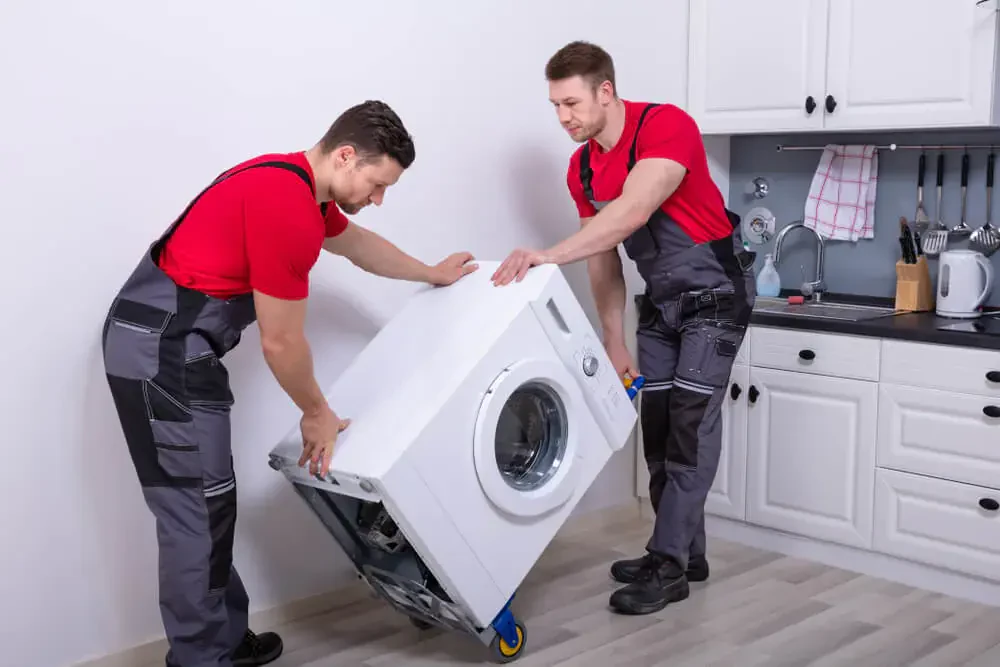Published by Chris Townsend
Last updated Jun, 09 2025

Apartment Moving Companies in Baltimore, MD
Moving out of your apartment in Baltimore is exciting news. Whether you are preparing to move from one apartment to another, from your apartment to a house, or out of the area altogether, it is exhilarating—but stressful. Part of that stress comes from the challenge of finding a moving company. You want to find the right one, and the process can be a bit intimidating.
How can I find a great apartment mover in Baltimore?
Finding the right Baltimore affordable moving company takes some careful research. The moving industry is enormous, but most of the companies that comprise it are small. In fact, almost half of all moving firms have fewer than five employees. Some of these companies are independent movers—like the best friends from high school who started their own business together—while others are agents representing a multinational van line or franchise owners with support from a corporate parent. No matter which kind of company you choose, you will need to check them out before deciding to engage them for your move.
Unfortunately, the industry is attractive to shady companies looking to make a quick buck at your expense, and it’s tough for regulators to keep in front of the scams. Movers who operate on interstate highways are regulated by the Federal Motor Carrier Safety Administration, or FMCSA, which is part of the U.S. Department of Transportation. They must register, and FMCSA maintains information on their safety history and customer complaints. That’s not a guarantee of honesty, but it helps identify the companies that operate with integrity. But for local and intrastate moves, regulations are harder to track. Maryland does have a new registration ordinance, but it isn't entirely in effect yet, so movers are unchecked. The Better Business Bureau receives over 13,000 complaints about moving companies every year and says that moving fraud is rising.
How do the moving scams work?
There are many varieties of moving scams, but almost all start with a verbal or online quote for the job. When a customer goes online to search for moving companies, they may be surprised at how many companies respond, offering great deals and specials. Most will claim that they can provide an accurate estimate of the cost over the phone or by having you complete an online form, and there is no need for them to come to your home and survey the work. Skipping this step sounds very attractive, but it is the biggest mistake most consumers make. The mover may have a nice-looking website, with glowing testimonials from happy customers and even lists of consumer awards. The sales staff are helpful and attentive.
One of the common rip-offs is that the mover asks for a large deposit to reserve the move date. Once you pay, you might never hear from them again. Or they might send a crew of unskilled labor in a rented truck to do the work. Or they may send a team that will start loading your goods and then tell you that the estimate is incorrect and that you must pay a much higher price for the job. If you object to paying more, they will demand that you pay them to unload what has already been loaded.

How can I recognize an unscrupulous moving company?
Start by checking the FMCSA and BBB websites for information about how the mover has performed in the past. The BBB collects positive and negative reviews about all kinds of businesses, including thousands of moving companies. The BBB suggests doing an internet search with the company name plus the word "scam" to see what comes up. One of the best ways to find out more about a company is to ask questions when the mover comes to survey for the estimate. A mover that isn't willing to do the visual survey isn't the right candidate for your consideration, so it's an easy way to eliminate potential options. When they are at your apartment for the walkthrough, ask them questions about how long they have been in business, about their worker's compensation insurance, and their services. A seasoned mover will answer your questions about the move and how they will handle it. They can give you advice about what preparations you should do for any specialty items you are moving. Part of choosing the mover is developing trust. After all, you are turning over your most important possessions to this company for safekeeping and transporting for either a short or long distance. It's vital that you feel comfortable with the person in charge of that job.
Ask for a written estimate. Experts recommend that you compare at least three estimates from movers. If one seems too low, it could be setting you up for a scam. Ask questions, and make sure that you are comparing the same services. Perhaps one of the vendors added a charge for stairs in your apartment building or elevator waiting time. These are legitimate charges, but if one company includes them in the estimate and another is adding the same amount later, it isn't a fair comparison.
What else can I do to protect myself?
You can take some steps to decrease the chances that you will be a victim of fraud or suffer a loss during the move process. First, never sign a blank contract or anything incomplete. One tactic scammers use is to tell you that they will fill in the lengthy paperwork when they get back to the office; all you have to do is "sign here." Please don't do it. Wait for them to fill in the costs before you sign, or you could be committing yourself to a price much higher than you intended.
Similarly, when you sign a delivery receipt for your goods, check that it does not attest to the shipment condition. Unless you have had a chance to look through each box and examine every piece of furniture (unlike) before you sign, don't agree to wording that states the goods are all present and undamaged. If the receipt indicates that, strike through the language and initial where you struck out before you sign. This precaution preserves your ability to file a claim later when you have the chance to look at everything.
Carefully label and number your boxes and take pictures of your furniture and other items. Make an inventory that lists what the movers load. Don't just name "30 boxes," be very descriptive about the contents so that if something is lost, you can identify it. For example, if you know that box 12 contained books and games and box 20 held Tiffany glassware, then when a container is missing, you will quickly determine what is gone.
Whether the move is local or long-distance, carefully review the liability protection provisions the movers offer you. Usually, there is a minimal amount provided at no cost, but it may not be sufficient to compensate you for your losses if something is lost or broken. The movers will offer you a more comprehensive option for an additional charge, and for most people, it is worth the price. Remember that in every case, you need to list items of high value separately (like that box of Tiffany glasses) for them to be covered. Always agree on a total value with your mover and make sure that you understand the deductible if there is one.
three movers apartment moving apartment movers baltimore


